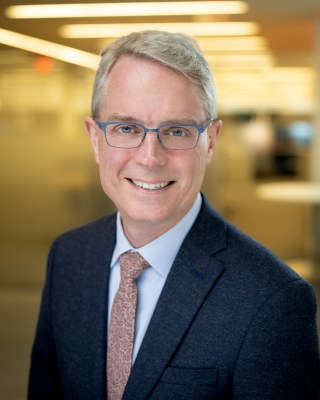
Can Americans be optimistic about their democracy?
Americans’ grim political mood and desire for change show up across our surveys. But despite divisions, there are hopeful signs for the future.
Numbers, Facts and Trends Shaping Your World

Michael Dimock, Ph.D., is president of Pew Research Center, a leading source of nonpartisan, nonadvocacy data that enriches public dialogue and supports sound decision-making.
During his tenure as president, the Center has been a field leader in advancing polling methodology; established the American Trends Panel, a nationally representative research panel; expanded international research and dissemination; launched a new line of work focused on science and society and deepened the organization’s research on race and ethnicity.
Dimock has led efforts to strengthen the Center’s ability to present complex data using journalistic storytelling, ensuring that its research serves a large audience and reaches key decision makers at the highest levels. In fiscal year 2024, Center research was cited in nearly 20,000 unique media stories, and 54 million visitors came to pewresearch.org. The Center is consistently one of the most cited think tanks and polling organizations in major world publications.
Dimock joined the Center in 2000 to work with founding director, the late Andrew Kohut. He became director of the political polling unit in 2012, served as executive vice president, and was appointed president by the Center’s board of directors in 2014.
Throughout his three-decade career, Dimock has been a frequent commentator on public opinion for major media organizations, appearing as a guest analyst on numerous television and radio programs. He has published articles on voting behavior, public opinion and survey methodology, and is a sought-after speaker, having presented at such venues as the Aspen Ideas Festival, Milken Institute Global Conference and various professional symposia.
Dimock received his Ph.D. in political science from the University of California-San Diego and his B.A. in political science from the University of Houston. Before joining Pew Research Center, he was a political science professor at North Carolina State University in Raleigh, N.C.